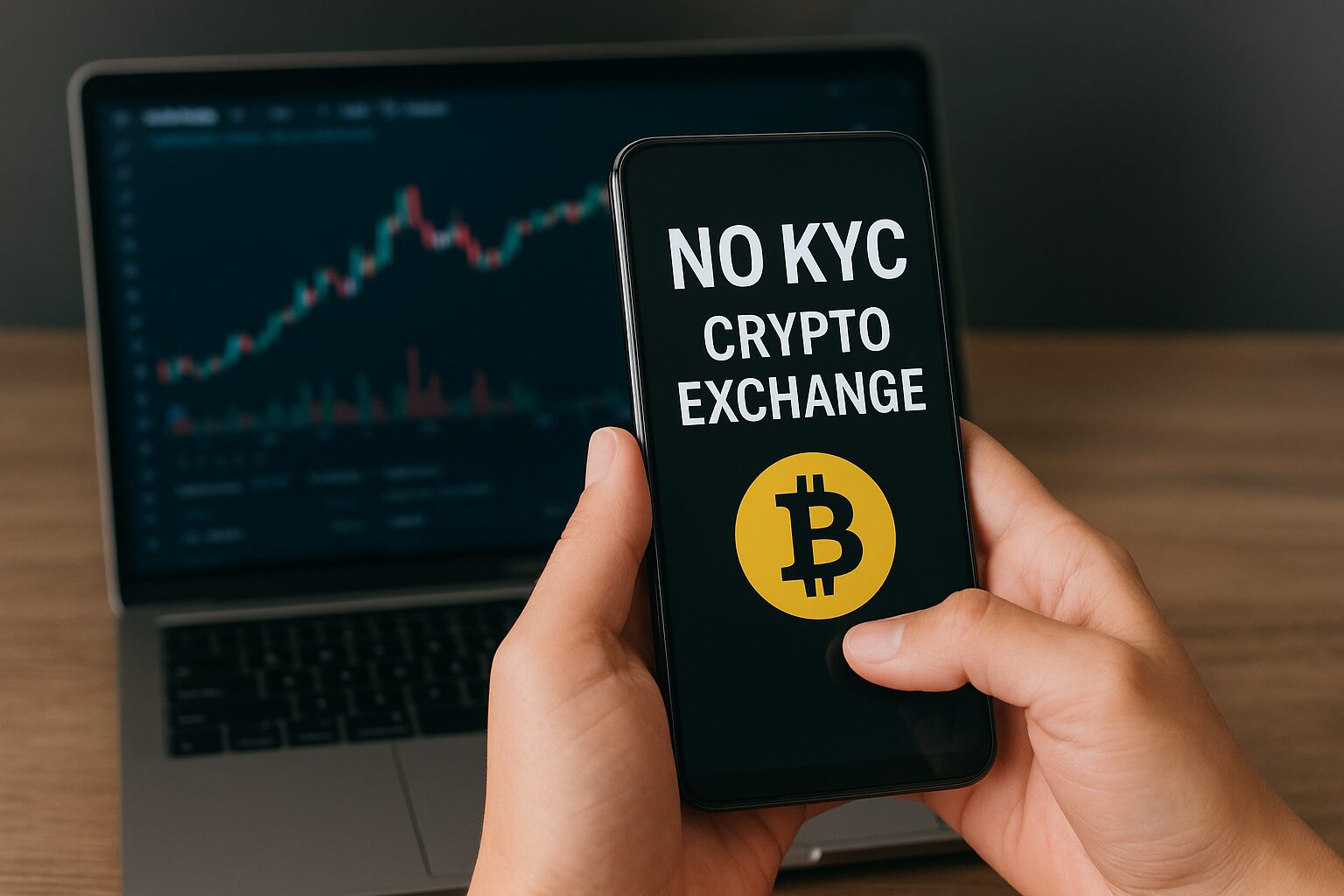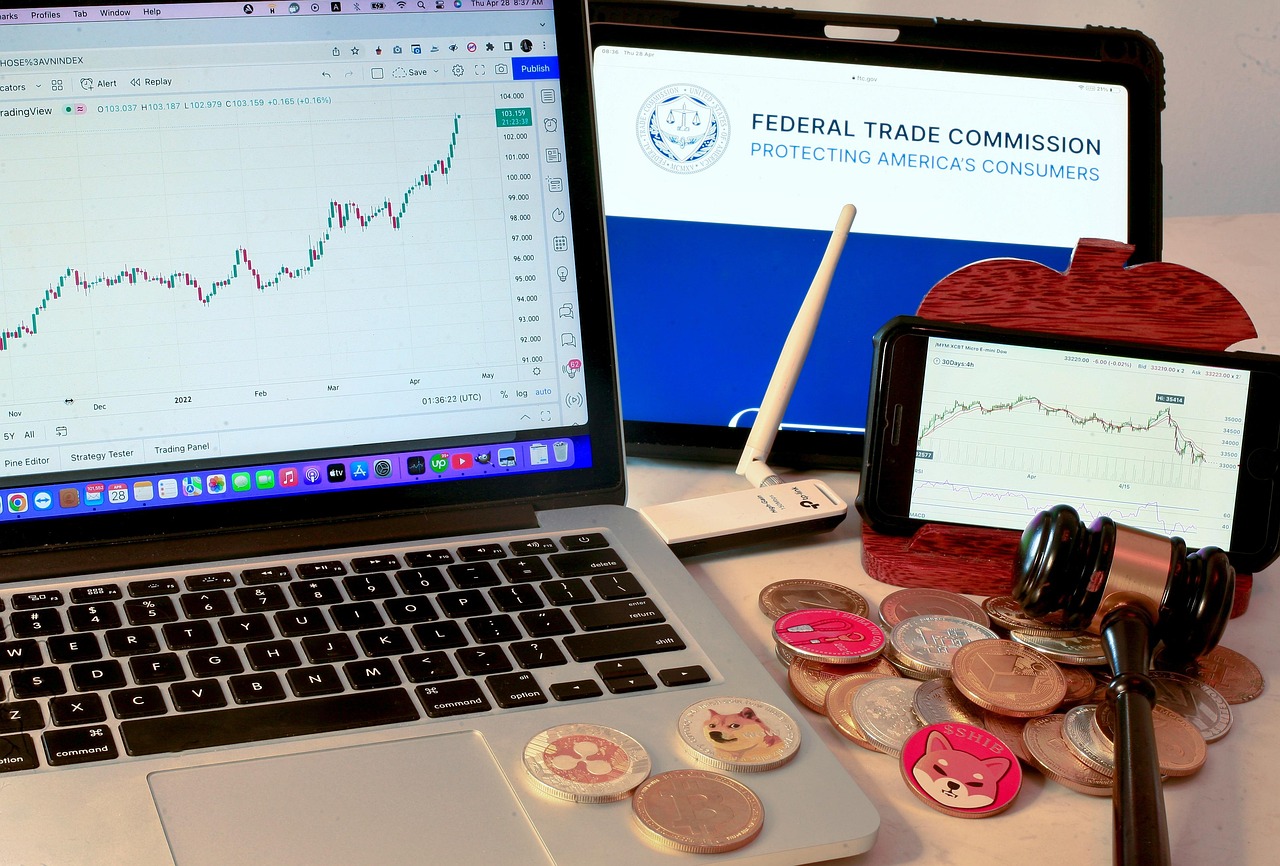In today’s digital finance world, no KYC crypto exchange platforms are gaining attention as an alternative to traditional trading systems. Normally, Know Your Customer (KYC) is a standard requirement for most crypto exchanges — a process where platforms ask users to verify their identity using government-issued IDs and personal information before trading or withdrawing funds.
But what if you prefer to trade privately? That’s where a no KYC crypto exchange comes in — platforms that let you buy, sell, or swap crypto without revealing your identity. These exchanges have become popular among users who value privacy, speed, and global accessibility. With data breaches and surveillance concerns on the rise, the demand for no KYC crypto exchange platforms focused on privacy and anonymous trading is growing rapidly.
In this guide, we’ll explore what no KYC crypto exchanges are, why they’re appealing, the risks involved, and our top recommended platforms for 2025.
What Is a No KYC Crypto Exchange?
A no KYC crypto exchange allows users to trade cryptocurrencies without completing identity verification. You can register with just an email address or even connect directly using a wallet — no ID uploads or personal documents needed.
How They Differ from Regular Exchanges
Traditional exchanges like Coinbase or Kraken require KYC to comply with global financial regulations. They’re regulated, often insured, and provide customer support — but at the cost of privacy. In contrast, no KYC platforms either operate under looser jurisdictions or use decentralized technology (DeFi) that doesn’t rely on a central authority.
Types of No KYC Exchanges
- Centralized No KYC Exchanges — Managed by companies but allow small or unrestricted trading without ID (e.g., KuCoin, MEXC).
- Decentralized Exchanges (DEXs) — Fully peer-to-peer platforms like Uniswap or Bisq, where users retain control of their funds.
Example:
Platforms like Uniswap let users swap tokens directly from their crypto wallet. There’s no registration — just connect your wallet, and you’re ready to trade.
Why Traders Choose No KYC Exchanges
No KYC exchanges have surged in popularity for several key reasons:
1. Privacy and Anonymity
Users avoid sharing personal data, reducing the risk of identity theft or government tracking.
2. Faster Registration and Withdrawals
No waiting for ID approval — you can start trading instantly.
3. Global Accessibility
Perfect for traders in countries with limited access to major exchanges due to sanctions or regulations.
4. Control Over Funds
Many DEXs allow users to keep their private keys, meaning you control your assets — not the exchange.
Risks and Limitations of No KYC Crypto Exchanges
While privacy is appealing, trading without KYC comes with risks.
1. Potential Scams and Rug Pulls
Unregulated exchanges may disappear overnight or manipulate liquidity pools.
2. No Legal Protection
If your funds are lost or stolen, there’s no government recourse or insurance.
3. Limited Fiat Options
Many no KYC platforms only support crypto-to-crypto trades, meaning you can’t buy directly with cash or credit card.
4. Risk of Lost Access
If you lose your wallet credentials, your assets are gone — no “forgot password” option.
Tip Box:
“Trade only on reputable platforms, double-check URLs, and always use a secure crypto wallet.”
benefits of Using No-KYC Crypto Exchanges
There are several benefits to using no-KYC cryptocurrency platforms. The main benefit is more privacy, since users can trade without giving out personal information. This keeps their name and financial information safe. Users can start buying, selling, or trading tokens right away on these platforms because they make it easier to set up an account and start dealing right away. Most of the time, no-KYC exchanges don’t put as many limits on deposits and transactions, which gives traders more options. Also, they can be especially helpful for people who live in places where KYC verification is hard to do because of rules. This makes it easier for more people to join the crypto market while still letting them keep their privacy and freedom.
Our Top Picks: Best No KYC Crypto Exchanges in 2025
Here are our most trusted no KYC crypto exchanges for privacy-conscious traders this year:
1. Binance (via VPN Access)
While Binance enforces KYC in most regions, users in some jurisdictions can trade small amounts or use a VPN to access limited features.
- Pros: High liquidity, advanced tools, wide range of coins
- Cons: Restricted regions, possible account closure for VPN misuse
- Best For: Experienced traders managing small trades anonymously
2. KuCoin
KuCoin allows users to withdraw up to 1 BTC daily without KYC.
- Supported Coins: 700+
- Highlights: Margin trading, futures, staking options
- Pros: Fast setup, low fees, solid reputation
- Cons: Limited fiat gateways
3. MEXC
A favorite among global traders for its user-friendly interface and no mandatory KYC.
- Liquidity: High
- Pros: Over 1,500 pairs, strong security record, low fees
- Cons: Occasional regional access restrictions
4. Bisq
Fully decentralized and peer-to-peer — no central authority, no registration.
- Features: Open-source, works over Tor network
- Pros: Complete anonymity, supports fiat payments through bank transfer
- Cons: Slower transactions, smaller liquidity
5. Uniswap
Built on the Ethereum blockchain, Uniswap is one of the largest DEXs in the world.
- Pros: Instant trading, non-custodial, no registration
- Cons: Ethereum gas fees can be high
6. PancakeSwap
A DEX built on the BNB Chain offering low transaction fees and privacy.
- Pros: Low fees, wide range of BNB-based tokens
- Cons: Limited to Binance Smart Chain assets
7. TradeOgre / 1inch / SimpleSwap
Other excellent privacy-first platforms with various token offerings and low fees.
Visual/Table Suggestion:
Comparison Table — Top No KYC Exchanges (Features, Fees, Supported Coins, Pros/Cons, Anonymity Level)
How to Start Trading on a No KYC Crypto Exchange
Follow these simple steps to start trading anonymously:
- Choose a Reputable Exchange — Start with trusted names like KuCoin or Uniswap.
- Set Up a Secure Wallet — Use MetaMask, Trust Wallet, or Ledger for cold storage.
- Deposit Crypto Assets — Transfer BTC, ETH, or USDT to fund your trading.
- Trade Anonymously — Swap, buy, or sell without submitting ID.
- Withdraw & Store Safely — Move long-term holdings to a cold wallet.
How to Stay Safe While Using No KYC Exchanges
Because privacy trading has limited protection, safety is critical.
Tips for Anonymous Trading:
- Verify official exchange URLs to avoid phishing scams.
- Use two-factor authentication (2FA) where available.
- Start with small transactions before larger trades.
- Consider using a VPN for added IP protection.
- Store large funds in hardware or cold wallets.
Visual Suggestion:
Infographic: “5 Safety Tips for Anonymous Crypto Trading”
The Legal Side of No KYC Exchanges
No KYC (Know Your Customer) exchanges let users trade crypto without asking for personal information. This gives users more protection and faster access to trading. But there are legal issues that come up with this. Many places need people to know their identities and follow anti-money laundering (AML) rules. This means that people who use platforms that don’t require KYC could be at risk if local rules are broken.
Also, these exchanges might not be controlled as closely, which could make it easier for fraud, hacking, or losing money without a legal way to get it back. Before trading on a no-KYC exchange, traders should carefully look into its jurisdiction, image, and security measures. They should also look into local laws to avoid possible legal and financial problems.
Are No KYC Exchanges the Future?
The rise of decentralized finance (DeFi) has changed the landscape of crypto trading. Traders now demand freedom, control, and privacy, and no KYC exchanges provide exactly that. However, governments are pushing for more oversight to prevent money laundering and scams. The likely future? A hybrid system, where exchanges balance privacy with compliance.
Between 2025 and 2030, we can expect region-based KYC flexibility and more decentralized platforms leading innovation.
FAQs — No KYC Crypto Exchanges
1. What does “no KYC” mean in crypto trading?
It means you can trade crypto without providing personal identification or documents.
2. Are no KYC exchanges legal?
Legality depends on your country. Some regions restrict or ban non-KYC trading.
3. Which is the safest no KYC crypto exchange?
KuCoin and MEXC are popular for security; Bisq and Uniswap offer the highest privacy.
4. Can I buy crypto with fiat on these platforms?
Most no KYC exchanges require you to already own crypto before trading.
5. Do no KYC exchanges have withdrawal limits?
Yes, many limit withdrawals (e.g., 1 BTC/day for unverified KuCoin users).
6. How do I protect my privacy while trading?
Use a VPN, trade in small amounts, and store assets in a private wallet.
7. Can beginners use no KYC exchanges?
Yes, but start small and learn the basics of wallet security first.
8. What are the risks of trading without KYC?
Scams, no recovery if hacked, and potential regulatory violations.
9. Are decentralized exchanges safer than centralized ones?
They offer more control but less protection — safety depends on your experience.
10. How do I find trusted no KYC platforms?
Check online reviews, Reddit forums, and official project audits before trading.
Conclusion — Privacy or Compliance? Choose Wisely
No KYC crypto exchanges offer an appealing mix of freedom, speed, and privacy, but they come with their own set of challenges.
If you value anonymity and control, DEXs like Uniswap or Bisq are excellent choices.
If you want a balance between convenience and privacy, KuCoin or MEXC might be ideal.
Whatever you choose, research carefully, stay compliant with local laws, and prioritize security.
Because in the end — your privacy and financial safety depend on how wisely you trade.
Disclaimer:
This article is for informational and educational purposes only. It is not financial, investment, or legal advice. Always conduct your own research before trading or investing in cryptocurrencies.



